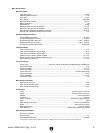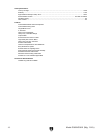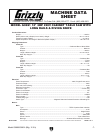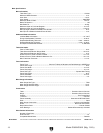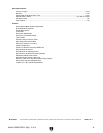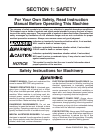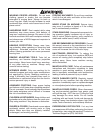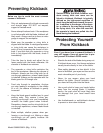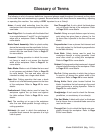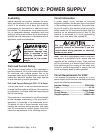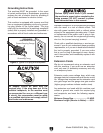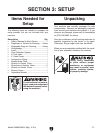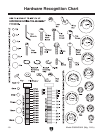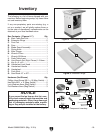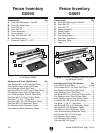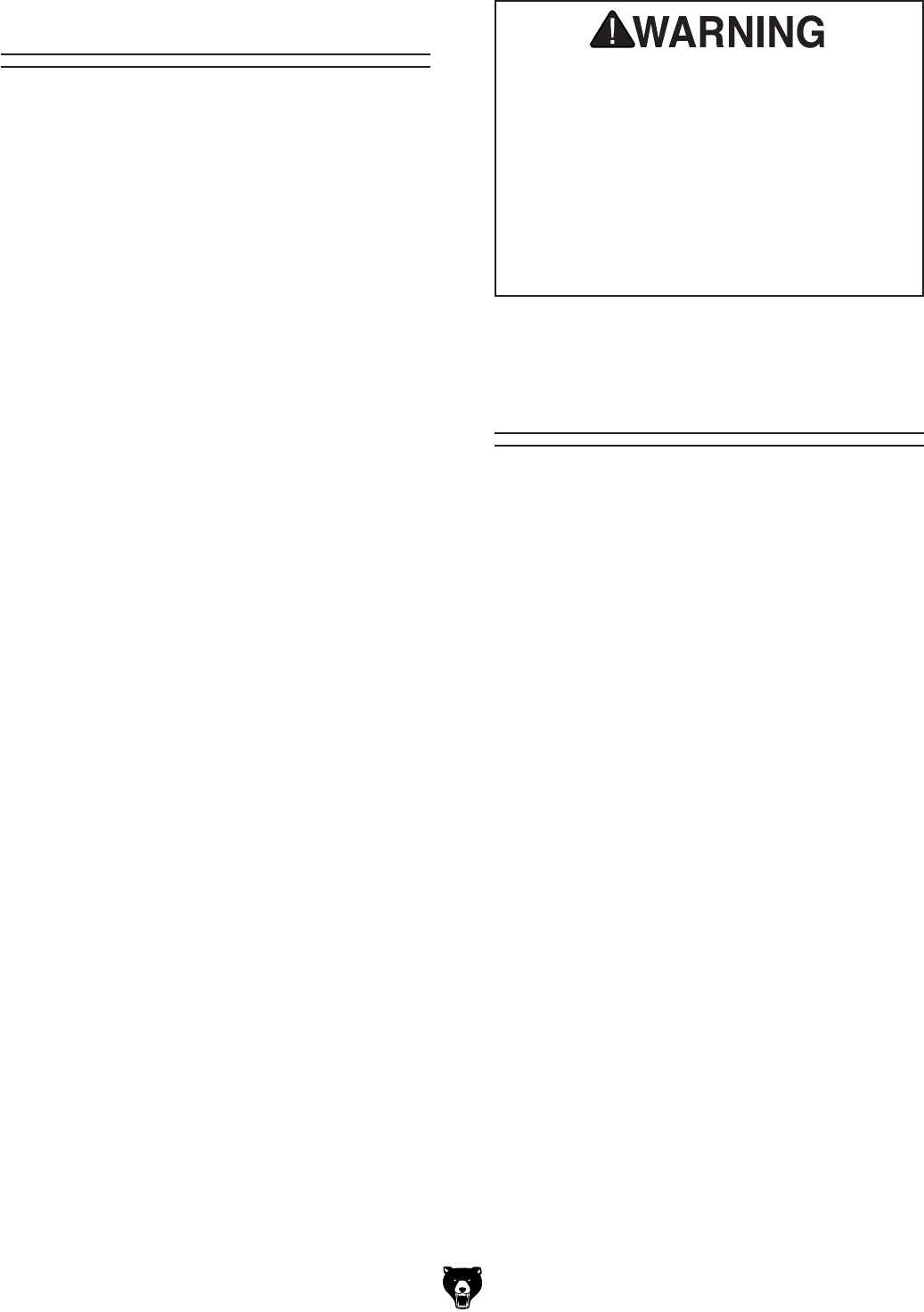
Model G0690/G0691 (Mfg. 11/10+)
-13-
Statistics show that most common acci-
dents among table saw users can be
linked to kickback. Kickback is typically
defined as the high-speed expulsion of
stock from the table saw toward its opera-
tor. In addition to the danger of the opera-
tor or others in the area being struck by
the flying stock, it is often the case that
the operator’s hands are pulled into the
blade during the kickback.
Below are tips to avoid the most common
causes of kickback:
• Only cut workpieces with at least one smooth
and straight edge. DO NOT cut warped,
cupped or twisted wood.
• Never attempt freehand cuts. If the workpiece
is not fed parallel with the blade, kickback will
likely occur. Always use the rip fence or miter
gauge to support the workpiece.
• Make sure the spreader or riving knife is
aligned with the blade. A misaligned spreader
or riving knife can cause the workpiece to
catch or bind, increasing the chance of kick-
back. If you think that your spreader or riving
knife is not aligned with the blade, check it
immediately!
• Take the time to check and adjust the rip
fence parallel with the blade; otherwise, the
chances of kickback are extreme.
• The spreader or riving knife maintains the
kerf in the workpiece, reducing the chance of
kickback. Always use the riving knife for all
non-through operations, unless a dado blade
is installed. Always use the spreader with the
blade guard for all through cuts.
• Feed cuts through to completion. Anytime
you stop feeding a workpiece in the middle
of a cut, the chance of kickback is greatly
increased.
• Keep the blade guard installed and in good
working order. Only remove it when per-
forming non-through cuts and immediately
re-install the blade guard when finished.
Remember, always use the riving knife for all
non-through operations, unless a dado blade
is installed.
• Make multiple, shallow passes when per-
forming a non-through cut. Making a deep
non-through cut will greatly increase the
chance of kickback.
Preventing Kickback
Even if you know how to prevent kickback, it
may still happen. Here are some tips to pro-
tect yourself if kickback DOES occur:
• Stand to the side of the blade during every cut.
If kickback does occur, the thrown workpiece
usually travels directly in front of the blade.
• Wear safety glasses or a face shield. In the
event of kickback, your eyes and face are the
most vulnerable part of your body.
• Never, for any reason, place your hand
behind the blade. Should kickback occur,
your hand will be pulled into the blade.
• Use a push stick to keep your hands farther
away from the moving blade. If kickback
occurs, the push stick will most likely take
the damage that your hand would have
received.
• Use featherboards or anti-kickback devices
to prevent or slow down kickback.
Protecting Yourself
From Kickback



